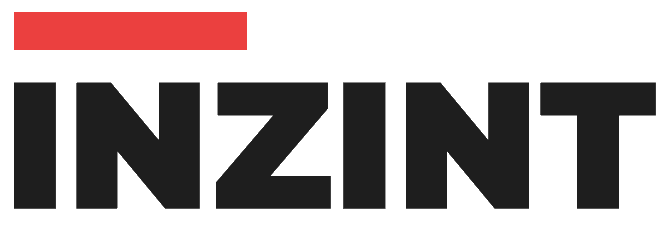Introduction
Artificial intelligence (AI) is revolutionizing software development, bringing automation, efficiency, and cost reduction. However, traditional development methods remain relevant for control, customization, and reliability. According to a 2023 Deloitte report, 64% of companies have integrated AI into their software development processes. So, how do you decide whether to use AI-driven development or stick to traditional methods? This blog explores the key differences, advantages, and use cases for both approaches.
AI in Software Development: A Game Changer
AI-driven software development introduces automation across coding, debugging, testing, and deployment. AI-powered tools like GitHub Copilot and OpenAI Codex have accelerated development time by up to 40%, according to a McKinsey study. By reducing manual tasks, AI allows developers to focus on innovation, security, and optimization.
Real-World Example:
- Microsoft & AI-Powered Coding: Microsoft reported that developers using GitHub Copilot completed tasks 55% faster than those coding manually.
Traditional vs. AI-Driven Coding: What’s the Difference?
Traditional Development:
✔ Requires human expertise for coding, debugging, and testing.
✔ Provides greater customization, control, and flexibility.
✔ More time-consuming and resource-intensive.
AI-Driven Development:
✔ Uses AI to automate repetitive tasks and generate code.
✔ Increases speed and efficiency but may lack deep contextual understanding.
✔ Still requires human oversight to ensure security and quality.
According to Gartner, by 2025, AI will generate 50% of all new code, making AI an essential tool rather than a complete replacement for traditional coding.
AI-Powered Code Generation: A Boon or a Risk?
AI-powered tools can generate functional code snippets based on natural language descriptions. While they boost efficiency, there are concerns regarding:
❌ Code security risks.
❌ Lack of deep logic understanding.
❌ Compliance and ethical considerations.
Industry Insights:
- Stack Overflow Survey (2023): 75% of developers using AI-assisted coding reported higher productivity.
- Google AI Research: Found that AI-generated code required 30% more human intervention for complex applications.
The Future of Software Development with AI
AI is transforming how businesses develop software. According to IDC, the AI-driven software development market is growing at a CAGR of 28% and is expected to dominate by 2030.
✔ Faster deployment cycles.
✔ Improved software quality and security.
✔ Ethical concerns and AI bias remain challenges.
AI-Driven Application Development: Faster, Smarter, and Scalable
AI accelerates app development by automating:
- UI/UX Design (e.g., AI-driven layout suggestions).
- Backend Optimization (e.g., AI-assisted database management).
- Security Enhancements (e.g., AI threat detection).
Case Study:
A 2023 Accenture report found that companies using AI-driven solutions reduced development costs by 30% and project completion time by 50%.
No-Code and AI Automation: The Future of Development?
No-code and low-code platforms empower businesses to build apps without extensive programming. AI enhances these platforms by:
✔ Automating complex coding tasks.
✔ Providing real-time recommendations.
✔ Reducing development barriers for non-tech professionals.
Industry Forecast:
- Forrester Research: No-code development will account for 65% of all app development by 2024.
AI for Software Testing and Debugging: A Quality Revolution
Software testing is one of the most time-consuming aspects of development. AI tools like Testim and Applitools automate:
✔ Test case generation.
✔ Bug detection and fixing.
✔ Predictive failure analysis.
Impact:
- Capgemini Report: AI-powered testing reduces manual testing efforts by 80%, improving software quality and reducing deployment failures.
Machine Learning in App Development: Personalization & Predictive Analytics
Machine learning is being integrated into applications to enhance user experience. Examples include: ✔ Netflix’s Recommendation Engine – AI-driven recommendations account for 80% of watched content.
✔ Amazon’s Personalized Shopping – AI-based suggestions contribute to a 35% increase in sales.
Machine learning also helps businesses optimize application performance through predictive analytics and real-time data insights.
AI vs. Human Developers: Can AI Replace Humans?
While AI enhances efficiency, it cannot replace human creativity, problem-solving, and ethical reasoning.
Survey Findings:
- LinkedIn Developer Report: 70% of developers believe AI will assist rather than replace their roles.
- World Economic Forum: AI-driven automation will create 12 million new tech jobs by 2030.
Businesses should adopt a hybrid development model, where AI handles repetitive tasks while human developers focus on strategic decisions and complex problem-solving.
How AI is Reshaping Software Engineering Careers
The rise of AI in software development is shifting job responsibilities. Instead of writing simple code, developers are now focusing on:
✔ AI model training & fine-tuning.
✔ Algorithm optimization.
✔ Ethical AI implementation.
Skills for the Future:
✔ AI & machine learning knowledge.
✔ Data analytics & security expertise.
✔ Ethical AI awareness.
Conclusion:
Which Approach is Right for Your Business?
Both AI-driven and traditional software development have their strengths. While AI enhances automation and efficiency, human developers ensure creativity, security, and ethical decision-making. The best approach is a hybrid model, leveraging AI’s strengths while maintaining human oversight.
Key Takeaways:
✔ AI speeds up development but requires human oversight.
✔ Businesses can reduce costs by up to 30% with AI-powered tools.
✔ AI-driven testing improves software quality by 80%.
✔ Traditional coding still excels in deep customization and complex problem-solving.
FAQs
- Can AI completely replace human developers?
No, AI is a powerful tool for automation, but human creativity, problem-solving, and ethical considerations remain crucial.
- What are the biggest risks of AI-driven software development?
Security vulnerabilities, bias in AI models, and compliance risks.
- Should startups invest in AI for development?
Yes! AI can help startups scale faster with automated coding and testing, reducing costs and improving efficiency.
By integrating AI strategically, businesses can gain a competitive advantage in the evolving world of software development. Interested in implementing AI in your projects? [Contact us today!]
